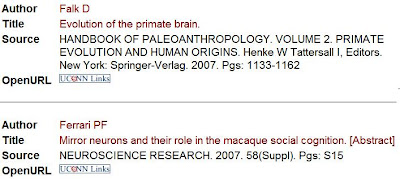For instance, he says that people's perception of time spent waiting while in a security or check-in line is usually longer than the reality -- up to 50%, in fact! Underhill suggests that the entire airport needs to be completely redone, in part for functionality, and in part to reduce our perception of this long wait time. He gives many examples of functionality, but here are two I liked: the "body bubble" is different in airports than it is in other areas of our lives -- we have only one hand free (if that) and we are pulling / carrying a suitcase, and possibly also a backpack. So our peripersonal space is totally different - but that is not taken into consideration when designing the airport. Another ha! moment: "the filthiest place in the first world is the bathroom in the economy section of an airplane."
As I watched all this, I started thinking that there are a lot of similarities between how Underhill describes the problems with airports and the difficulties some of our patrons face in libraries.
Underhill says: "... we live in a world that is owned by men, designed by men, managed by men, and yet we expect women to participate in it." Amen, brother! (but I digress) Except ... I'm not really digressing. What if we modify that phrase like this:
"... we create a library that is owned by librarians, designed by librarians, managed by librarians, and yet we expect novice library patrons to participate in it." (changed words italicized) It's a slight modification, but all of a sudden some of us might have a better understanding of what the library is like for our patrons. D'oh!
Underhill gives some great ideas on how airports could be "reinvented:"
- Free WiFi everywhere, among other suggestions to improve incessant travel waiting. again I say, Amen, brother! (and also: thank you! to my local airport, BDL, which does offer free WiFi)
- Offer different lines at security, for families, registered travelers, etc.
- Offer healthy food choices! halal, vegetarian ...
- Shopping (and other services) that reflect a one-handed customer. He suggests offering a wand-style checkout like the Exxon/Mobil Speedpass to reduce physical difficulties paying for items in an airport.
- Rocking chairs like at the Charlotte airport, and other kinds of movable seating (his demonstration of the rocking movement is charming).
For More Information
- Underhill, Paco. Deconstructing the Airport "Stories from the Near Future," the New Yorker Conference, May 23, 2008. Available through iTunes.
- Also possibly of interest: Airport Wireless Internet Access Guide, which lists airports which offer free WiFi. Yay!

